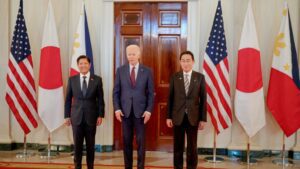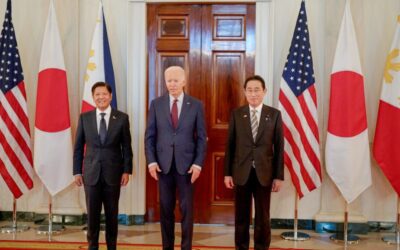Philippine-based election watchdog Kontra Daya has released its full research on the background of party-list groups participating in the 2022 national elections.
Based on their findings, the group said majority of the party-lists are not representing the poor and have questionable backgrounds that go against the intent of the party-list system.
Out of 177, it identified 124 — or 70% of the party-list groups as having unclear representations and advocacies; having links to political clans, big business, government or military; or have nominees facing pending cases in court.
The research, spanning 37 pages, was a product of a team of researchers who grouped the party-lists and assigned each member to do deep background investigation.
The researchers looked at the particular party-list’s track record from publicly available information, their declared advocacies, and background of nominees. The also searched for issues surrounding each party-list group and its candidates.
Red flags
Kontra Daya labeled some party-list groups with multiple red flags. Party-list groups that allegedly raised at least three concerns include WOW Pilipinas, Maagap, ACT-CIS, TGP, BHW, PTA, Duterte Youth, CWS, MayPagasa, PVAID, and IPEACE EPANAW.
It also flagged party-lists ACT-CIS, 4P’s, BHW, Mocha, and Abante Sambayanan for their reported multiple links to interest groups.
This year’s figures mark a huge increase from Kontra Daya’s findings in the 2019 elections, which convenor Danilo Arao said was roughly only half or 50% of the party-list groups at the time.
Arao said that the Commission on Elections (Comelec) would justify through the years that it was just following the law and the interpretation of the Supreme Court. With this, he said, practically anyone can run as a party-list nominee without belonging to a marginalized sector as long as they claim to champion the rights of the poor.
“Ang hindi masyadong naipaliliwanag sa publiko, mayroong quasi-judicial at quasi-legislative function ang Comelec. Pwede naman niyang i-interpret ang batas nang naaayon doon sa intent ng pagkakabuo nito,” Arao told DZXL 558’s Meet The Boss on March 4.
“Kasi kahit tanungin niyo ang mga framer ng Constitution at mismong gumawa ng Party-List System Act of 1995, sinasabi nila na dapat binibigyan ng kaukulang espasyo ang mga marginalized and underrepresented,” he added.
“Pero ngayon ang nakakapagtaka, under the party-list system, ang nama-marginalize ay ang mga marginalized.”
Kontra Daya, in an earlier statement, said that the country’s party-list system continues to be “hijacked by the rich and powerful”. “They are being used as a backdoor to further entrench the political and economic interests of the rich,” the group said.
With the corruption of the party-list system, some camps have called for its abolition. But Arao said that the most reasonable solution is to amend the party-list law to reflect its original intent: giving genuine representation to the marginalized and underrepresented sectors in Congress.
“Public pressure is necessary for Congress to pass these amendments,” he said.

![Philippine-based election watchdog Kontra Daya has released its full research on the background of party-list groups participating in the 2022 national elections. Based on their findings, the group said majority of the party-lists are not representing the poor and have questionable backgrounds that go against the intent of the party-list system. Out of 177, it […]](https://www.altermidya.net/wp-content/uploads/2022/03/Web-Partylist-KD-e1648160620947.jpg)








0 Comments